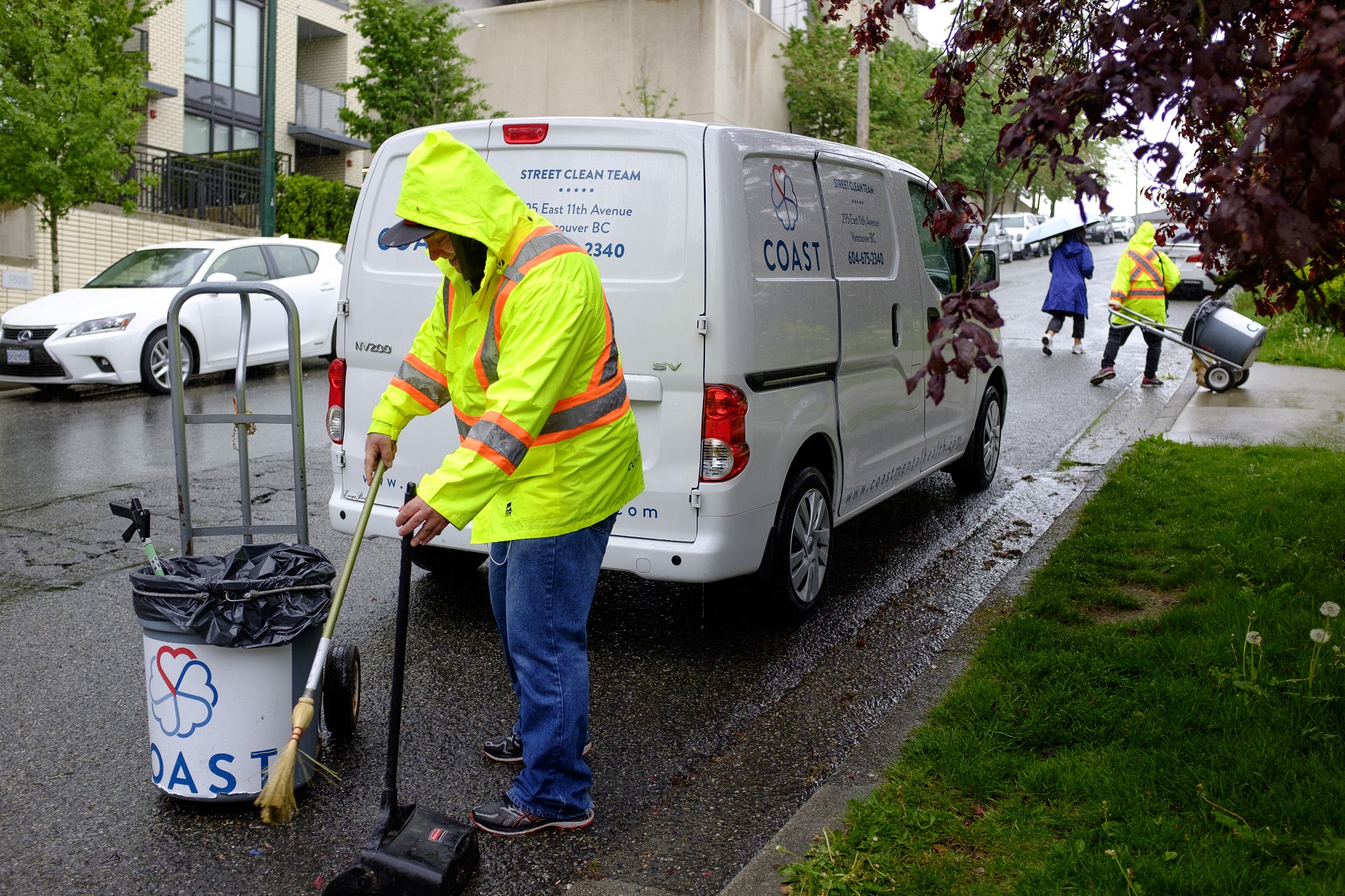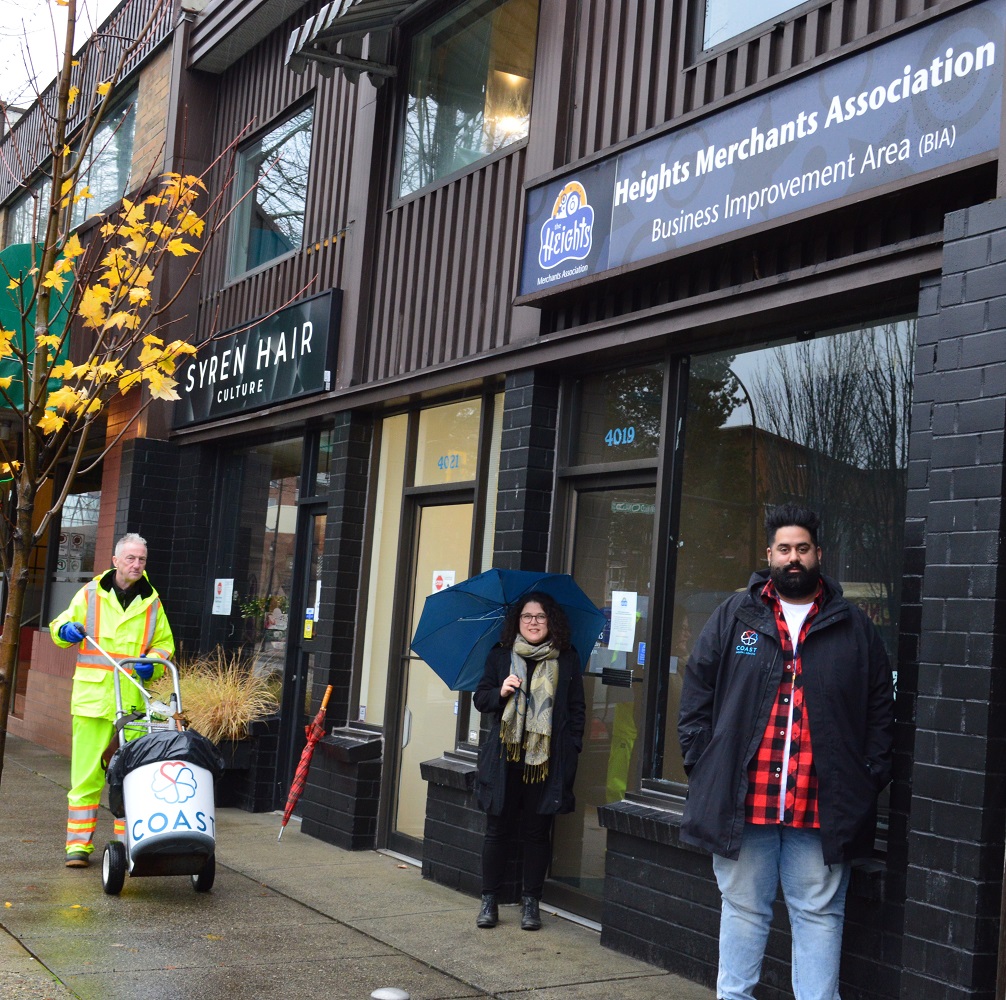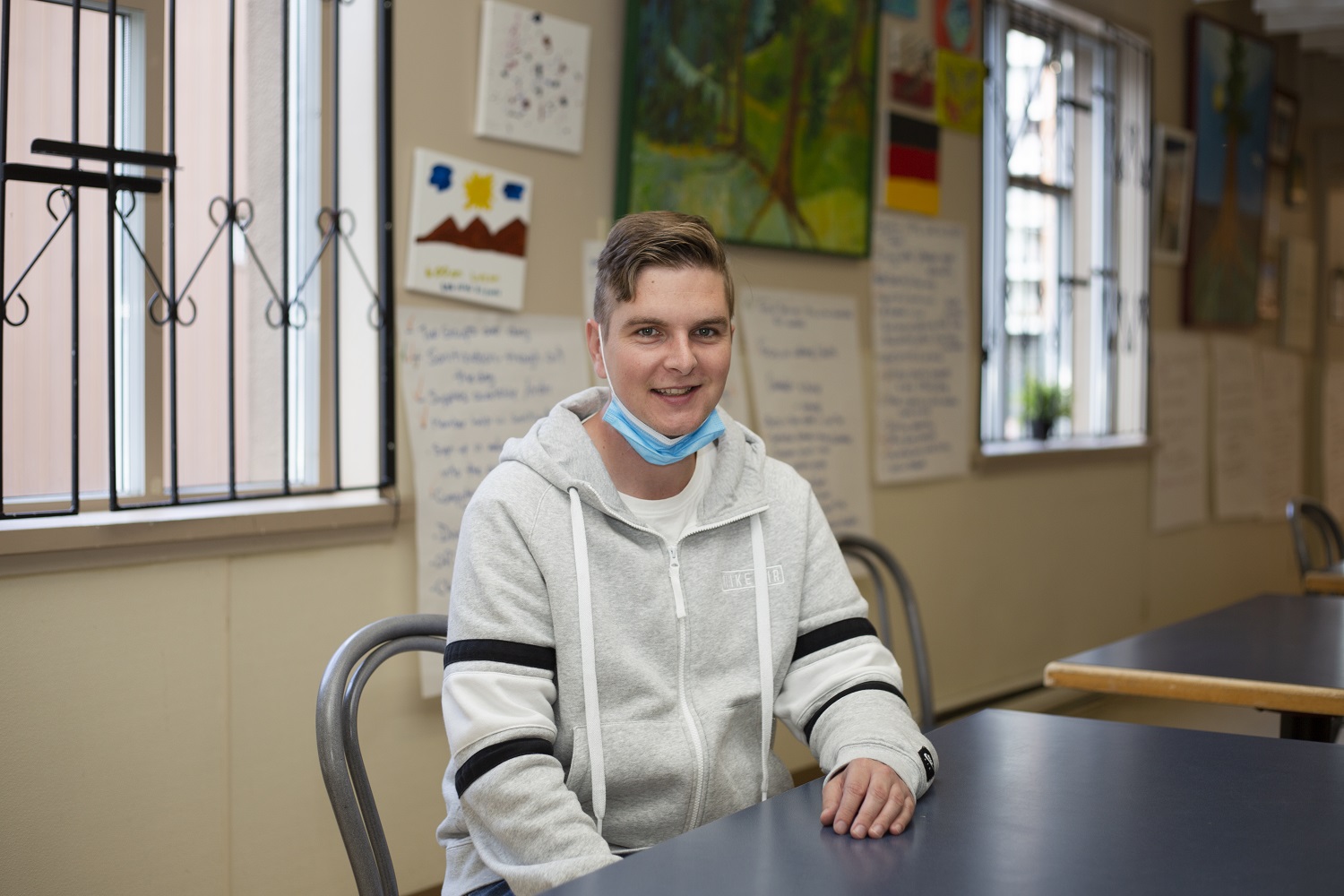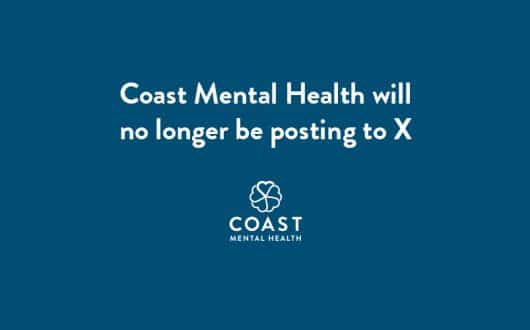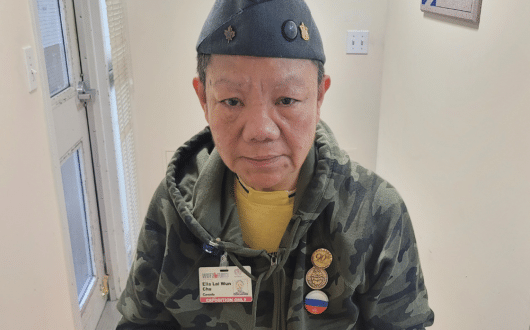Many people living with mental illness have the capacity to be productive and maintain employment. It’s an outdated myth to think otherwise. Often, people living with severe mental health might not be able to carry out regular work or might need more flexibility from their employer, but in most cases people living with mental illness are just as dedicated to their jobs as anyone else when given the opportunity.
Coast Mental Health’s Transitional Employment Program (TEP) is designed to do just that. The program supports people who face barriers in finding suitable employment because of mental health challenges.
How specialized employment services build strong communities
In 2019-2020 the employment program supported 87 members with paid employment. They work with over 20 Business Improvement Associations (BIA) and local businesses through its Street Clean Team and Landscaping With Heart services. Not only are employment services benefiting its employees, but the businesses they serve as well.
Isabel Kolic has been leading the BIA for Burnaby Heights for the past 16 years.
“It’s our job to bring the customers to the area, and the businesses’ job is to bring them through the door, and the sidewalk cleaning is part of our ability to bring customers to the area,” says Kolic. “[The BIA’s] directive and our mandate is to promote the economic development of the commercial district, together with the community.”
Michael, a member of the Transitional Employment Program at Coast Mental Health, Isabel Kolic, BIA for Burnaby Heights business district, and Rick Minhas, program coordinator of TEP.
Flexible employment opportunities for folks living with mental illness not only promote purpose, it can also lift people out of poverty and restore a sense of dignity and belonging. Rick Minhas has witnessed this phenomenon first hand, working as the Employment Services Program Coordinator. While overseeing the day to day logistics of Coast Mental Health’s TEP, he’s observed members apprehensively join the program only to emerge as recognized and beloved caretakers of the community. So much so, that his employees are referred to as the “eyes on the street,” making sure the streets are not only clean but also safe.
When folks living with mental illness are given the opportunity to work, it can be extremely conducive to their recovery.
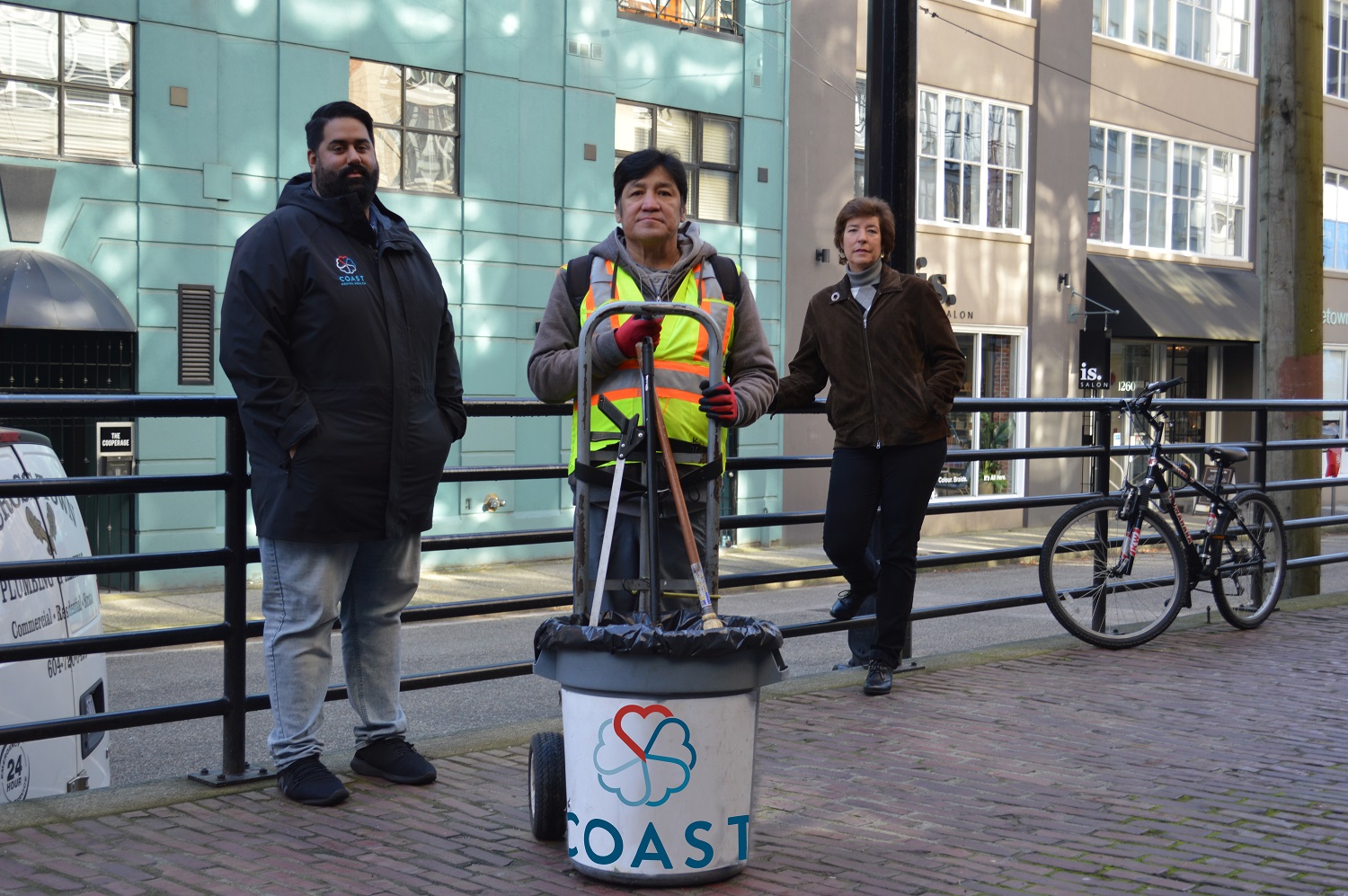
Left to Right: Rick Minhas, program coordinator of the Transitional Employment Program at Coast Mental Health, Curtis, TEP member who works in the Yaletown district, and Annette O’Shea, the executive director of Yaletown BIA. Visit The Source newspaper to read more…
According to Cathy Taylor, the Director of Employee Services, there are many benefits to having a routine, a purpose and responsibility as key components of recovery.
“By giving people employment opportunity, it gives them structure in their life. Whether that’s a routine of getting out of the house, getting dressed or taking the bus to come to the Clubhouse, it gives them purpose.”
The ability to work gives people the motivation, routine and social connections to stay well and reintegrate into the community.
The problem is that it can be difficult for folks to obtain employment from regular employers. When employers don’t consider that a person’s wellness needs, that can further exacerbate mental health challenges. The Program Manager at Coast Mental Health’s Clubhouse, Simone Frey says some of these challenges include navigating the ups and downs of their recovery.
“I think for a lot of our members, it is really difficult living with a mental illness, being on very strong medications, to actually get up in the morning. Routine is a very important part of their sustained recovery; Its important to have a plan of how the day is actually going to look, instead of just waking up and not really knowing what to do with themselves,” says Frey.
Matt is a member of the Transitional Employment Program at Coast Mental Health’s Clubhouse. Read Matt’s story…
How employers benefit
Frey, along with the other employees at the Clubhouse, work with its members to prepare them to enter the workforce. Everything from resume building and interviewing skills to grooming and transit routes, the TEP crew help people with mental illness successfully transition into the workforce.
Many work environments don’t take a person’s mental health into account. A stressful workplace can further exacerbate mental health challenges, especially when employers resist helpful accommodations. Because managers are often poorly informed about common difficulties of mental illness, they fail to recognize and respect employees’ needs. That’s why programs like Coast Mental Health’s TEP, designed to offer flexibility, are crucial to the integration of people living with mental illness into the workforce.
Non-profits like Coast Mental Health require further investment in this area to provide adequate training and mental health services to help people not only manage their mental health but also gain job-ready skills. We need a significant investment in specialized employment services that are customized to meet the needs of our mental health community. This includes funding for transitional programs and specialized services for people living with mental illness and funding to assist employers who are interested in building healthy and inclusive neighbourhoods.

Coast Mental Health has launched a campaign with the aim of ensuring the government makes funding mental health a key priority.
We have 5 recommendations of support focusing on social determinant of health and wellness that influence our mental health.
This week, we’re advocating for the importance of employment services for people living with mental illness to promote purpose, dignity, and recovery.
Are you interested in becoming a Clubhouse member and part of the Transitional Employment Program?
Visit our website for more details or email us:
employmentprogram@coastmentalhealth.com

